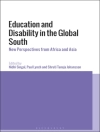By working with underserved communities, anthropologists may play a larger role in democratizing society. The growth of disparities challenges anthropology to be used for social justice. This engaged stance moves the application of anthropological theory, methods, and practice toward action and activism. However, this engagement also moves anthropologists away from traditional roles of observation toward participatory roles that become increasingly involved with those communities or social groupings being studied. The chapters in this book suggest the roles anthropologists are able to play to bring us closer to a public anthropology characterized as engagement.
Jadual kandungan
Introduction: Public Anthropology
Sam Beck and Carl A. Maida
Chapter 1. Expert and Lay Knowledge in Pacoima: Public Anthropology and Essential Tension in Community-based Participatory Action Research
Carl A. Maida
Chapter 2. Norwegian Anthropologists Study Minorities at Home: Political and Academic Agendas
Thomas Hylland-Eriksen
Chapter 3. Dow Chemical’s Knowledge Factories: Action Anthropology against Michigan’s Company Town Culture
Brian Mc Kenna
Chapter 4.Producing Knowledge for Public Use: New Challenges in the U.S. Academy
Judith Goode
Chapter 5. Notes on a Dialogical Anthropology
Udi Mandel Butler
Chapter 6. Mapping Solidarity: How Public Anthropology Provides Guidelines for Advocacy Networks
Raul Acosta
Chapter 7. Lessons from Vicos
Billie Jean Isbell
Mengenai Pengarang
Carl A. Maida is Professor in the Institute of the Environment and Sustainability at the University of California, Los Angeles. His publications include Sustainability and Communities of Place (2007), Pathways through Crisis: Urban Risk and Public Culture (2008), Children and Disasters (1999), and The Crisis of Competence: Transitional Stress and the Displaced Worker (1990).












